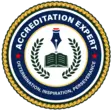Types of Postsecondary Institutions in Vermont
- In-state Higher Education Institutions: Institutions established and operating within Vermont.
- Out-of-state Colleges: Institutions based outside Vermont seeking to offer programs within the state.
- State Authorization Reciprocity Agreements (SARA): An agreement streamlining the process for institutions offering distance education across state lines.
Statutes and Rules Governing Postsecondary Institutions
- Statute: 16 V.S.A. § 175 – Postsecondary educational institutions; closing.
- State Board Rules: 2240 Postsecondary Schools.













